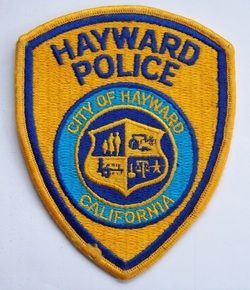Court: Police can’t charge public for cost of redacting videos
 While California has strong government openness laws, some public agencies still seek to place obstacles to obtaining public information. A common tactic is to agree to provide records but only if those requesting the information pay heavy fees to cover processing costs.
While California has strong government openness laws, some public agencies still seek to place obstacles to obtaining public information. A common tactic is to agree to provide records but only if those requesting the information pay heavy fees to cover processing costs.
But now a Bay Area judge has issued a ruling rebuking the city of Hayward and its police department for this practice. The case stemmed from the National Lawyers Guild’s request for footage from officers’ body cameras as they helped patrol a contentious overnight Black Live Matters protest in Berkeley on Dec. 6-7, 2014 — a request police complied with after the guild paid $3,247. Police justified the high cost by saying the footage had to be carefully examined and redacted.
That led to a lawsuit filed by the ACLU of Northern California and the Law Offices of Amitai Schwartz that culminated recently with a terse decision by Alameda County Superior Court Judge Evilio Grillo.
“The CPRA [California Public Records Act] and the related provisions in the California Constitution demonstrate a strong policy that the public should have prompt and low-cost access to public records,” Grillo wrote. Hayward and its police agency erred in its fee request by not only billing the guild for the direct costs associated with duplicating records but costs of “ancillary tasks necessarily associated with the retrieval, inspection and handling of the file from which the copy is extracted.”
Grillo’s ruling was called precedent-setting by the ACLU. It parallels a Milwaukee police case in which the Wisconsin Supreme Court ordered the city police agency to stop charging for redaction in public records requests.
Grillo ordered the Hayward police department to refund all but $1 of the $3,247 bill, with the $1 covering the cost of the DVD onto which the body camera footage was copied.
In November, the National Lawyers Guild sued the city of Berkeley on behalf of 11 plaintiffs over the conduct of its police force and the neighboring agencies which helped respond to the large protest. The suit alleges indiscriminate use of tear gas, rubber bullets and batons against protesters who were responding to the clearing of a white New York police officer in the chokehold death of Eric Garner, an unarmed black man who was caught on video telling police “I can’t breathe” before dying.
Berkeley police officials have already formally acknowledged doing a poor job during the protest. In June 2015, the department submitted a report to Berkeley’s Police Review Commission with 32 recommendations, “including improving the officers’ awareness of developing situations, making deployment of police resources more efficient and increasing the quality of equipment for communication with protesters,” the Daily Californian reported.
Chris Reed
Chris Reed is a regular contributor to Cal Watchdog. Reed is an editorial writer for U-T San Diego. Before joining the U-T in July 2005, he was the opinion-page columns editor and wrote the featured weekly Unspin column for The Orange County Register. Reed was on the national board of the Association of Opinion Page Editors from 2003-2005. From 2000 to 2005, Reed made more than 100 appearances as a featured news analyst on Los Angeles-area National Public Radio affiliate KPCC-FM. From 1990 to 1998, Reed was an editor, metro columnist and film critic at the Inland Valley Daily Bulletin in Ontario. Reed has a political science degree from the University of Hawaii (Hilo campus), where he edited the student newspaper, the Vulcan News, his senior year. He is on Twitter: @chrisreed99.
Related Articles
CalPERS pressed to divest from energy firms, banks
After years of criticism, the California Public Employees’ Retirement System made headlines in December when its board voted to lower
Silicon Valley fears backlash over U.S. firms’ NSA ties
Sunday’s New York Times/ProPublica blockbuster report about AT&T providing U.S. national security agencies with access to hundreds of billions of



